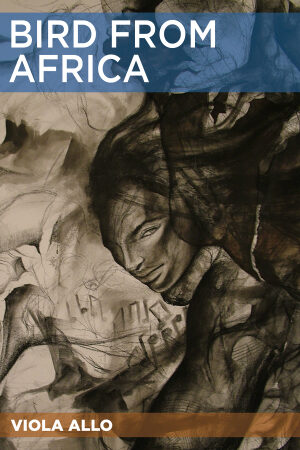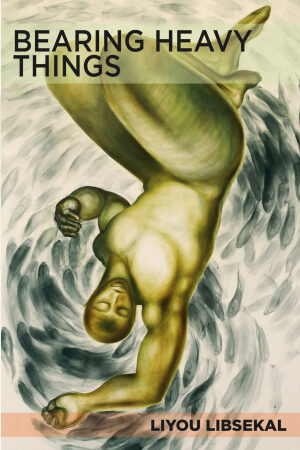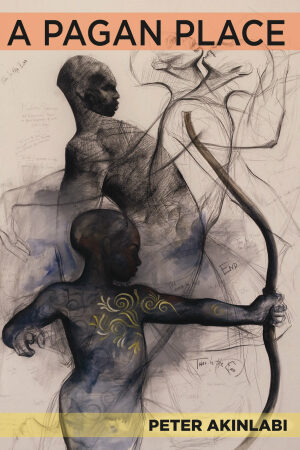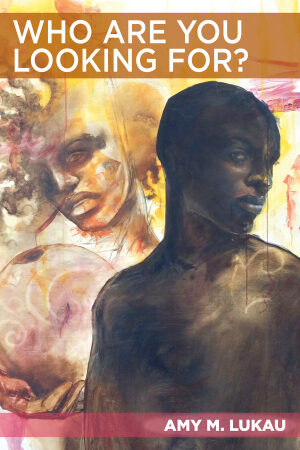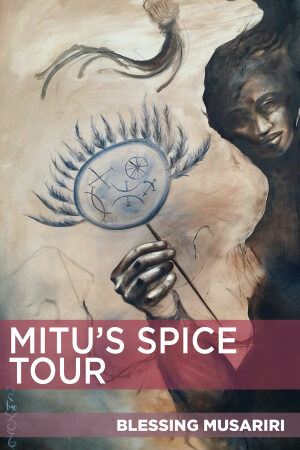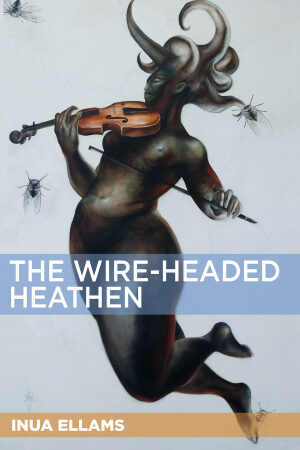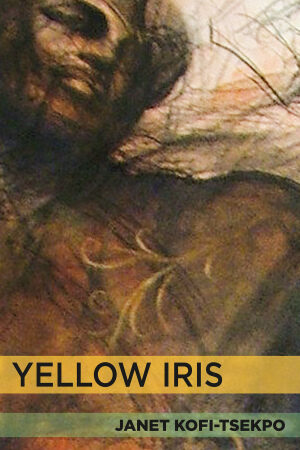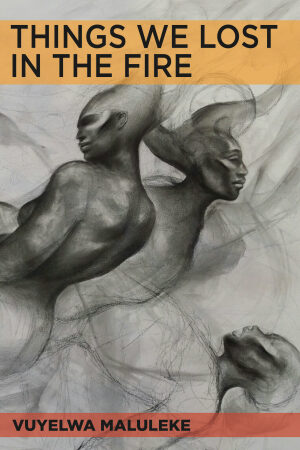In Their Own Words
EIGHT NEW-GENERATION AFRICAN POETS
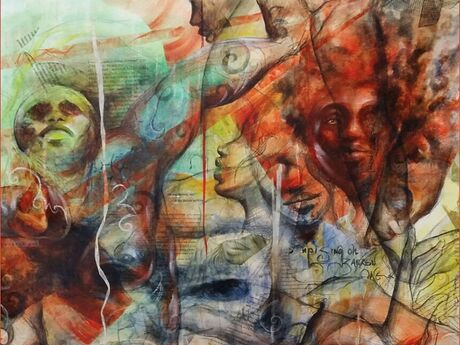
EIGHT NEW-GENERATION AFRICAN POETS
An excerpt from Kwame Dawes Introduction
The plan is simple, as publishing plans go. Publish seven to ten chapbooks by African poets each year. Promote said chapbooks. In ten years there will be seventy to one hundred chapbooks by African poets that might not have existed before. Oh, and make sure the work is first-rate, representative, and new. This plan only works if there are seven to ten really gifted African poets who have not yet had a major publication. This only works if you know how to find them. This only works if you have a team of brilliant editors willing to help select and, where necessary, nurture these poets. This only works if you have the resources to do it. With the inimitable and generous Chris Abani as coeditor, and with a supportive team of editors—Bernardine Evaristo, Gabeba Baderoon, John Keene, and Matthew Shenoda—to assist in the selection and introduction writing, we had the team that could make this happen. Finally, with a great bequest by Laura Sillerman, the project had the funding support needed to make it all possible.
In our first year we collaborated with Slapering Hol Press to produce an exciting box set, Seven New-Generation African Poets, with a roster of poets who were already positioned to embark on impressive publishing careers.
Of the seven poets included, four are currently anticipating publication of their debut full-length books. The other three will see first collections in the next two years. We dare not take credit for these successes; that was never the point. What we take some joy in is the fact that the series has generated the kind of interest in African poetry that we have not seen in a long time. This is a good thing. Any anxiety that there is not ample talent to sustain such a project has proven to be absurd.
This year, Akashic Books has assumed the role of publisher and has brought its remarkable savvy and creative brilliance to the project. This year's lineup of poets has grown to eight, and the quality of the poetry remains as stellar as ever. Eight New-Generation African Poets featurespoets from the Cameroon, Nigeria, Ghana, Ethiopia, South Africa, Zimbabwe, and Angola, as well as the US and the UK where some of these poets now reside. The poems open up spaces of the African imagination that are varied in their topical interests, but consistently alive with surprise and energy. Several of these poets reflect the more recent African diaspora, and so they offer us a complex of identities that are negotiated though the demands of the poetic project of using language to somehow express their sense of the world.
For some people who follow African poetry, who have attended readings by poets in clubs and halls in Harare or Cape Town or London, these names will not be unfamiliar. For people paying close attention to literary journals and online poetry sites around the world, these names may ring a bell. The point is that these are poets whose work reflects a striking clarity of voice and aesthetics that speaks to their long experience at the craft in some instances, and to their uniquely refreshing genius in others. At the end of the day, the chapbooks are a delight to read and continue to reinforce what we have been certain about since this project began, that African poetry is rich with variety and poetic complexity. Of course we went out in search of the poets. And we got important help along the way.
Many of the poets we considered were introduced to us by people like the writer and literary activist Beverley Nambozo of Uganda. Others came from writers in the UK and the US, and still others came to our attention in contests like the Sillerman First Book Prize and the Brunel University African Poetry Prize. We scoured venues like the Badilisha Poetry podcast site to find voices that might engage us. We read manuscript after manuscript to narrow things down to these eight.
We can conclude that African poetry is varied, vibrant, earnest, and brimming with the energy and intelligence we enjoy in the best poetry. But each of these writers demonstrates something else—a distinctive voice that is fresh and compelling. These are urgent voices as engaged with the politics of human existence as with the beauties of the world we live in. If you read these chapbooks, I am confident that you will not quickly forget these names: Liyou Libsekal (Ethiopia), Vuyelwa Maluleke (South Africa), Amy M. Lukau (US/Angola), Inua Ellams (Nigeria/UK), Viola Allo (Cameroon/US), Peter Akinlabi (Niegria), Blessing Musariri (Zimbabwe), and Janet Kofi-Tsekpo (UK/Ghana). The art gracing the covers of these chapbooks comes from the remarkable Nigerian artist Imo Imeh.
Our hope, though, is that we are not simply introducing these poets to a Western readership, but indeed, first and foremost, to an African readership. One of the sad ironies of the situation with poetry in Africa is how infrequently published work crosses the borders of the various nation-states and regions of the continent. Some of the writers are part of a growing circuit of spoken-word poetry in larger cities, and for those able to attend festivals there is a chance to hear some of these poets. But given the challenges of publishing and distribution on the continent, the books are not making that journey, and while one can overvalue the importance of the published work, one must never underestimate its value as a critical source of artistic and cultural memory for our societies. This box set, we hope, will do that work in meaningful ways.
—Kwame Dawes
* * *
The entire set of chapbooks is now for sale and available from Akashic Books. A single poem from each volume is presented below.
* * *
BODIES, FLOWERBEDS
from Bird From Africa
by Viola Allo
The earth, carved up, engraved with bodies,
this hollow vision of death: people resting
together, bodies beneath a bed of flowers.
We soften death into poems and stories.
The art of writing is just a way of wailing
for the earth, carved up, sculpted by bodies.
In Cameroon, hair from the dead is carried,
mixed with camwood and kept; the living
remember bodies beneath beds of flowers.
What we seek through our endless studies
sits beyond death, but the path to it is sinking
into a carved-up earth, paved with bodies.
The sharp shovel of silence briefly remedies
the ear deaf to the voices of the dead, linking
it to slender-petaled tongues in a flowerbed.
A poem or a story is an etching of memories,
dignity in the fragile face of loss. Soothing
the earth, carved up, engraved with bodies,
we hum together beside a bed of flowers.
* * *
IN THE VOICE OF OUR RAIN
from Bearing Heavy Things
by Liyou Libsekal
I am the essence of kin
Loyal heart through curses hurled
as city boots get scrubbed clean
I am a gift for the shy
A dew-dipped bloom
picked with hope of a smitten lover
I am cloud-cleansing gray
Mother and child dancing pitter-patter
to meager tin roof grateful
I am silence to heat
White noise, and lungs breathe
quench earth for the feed
I will draw you the deepest greens
farmer's prayer sprouting seed
* * *
A BRIEF HISTORY OF MY STUTTER
from A Pagan Place
by Peter Akinlabi
I imagine my birth as under
an ancient tree on the twenty-sixth day
of the month of the masquerades.
The rasps come first,
between the first gutturals and
the hums of late afternoon.
The day is stifling, duct-taped
into sunspots under the odan tree;
a mermaid moon climbs, her face
scattering the darkness of the leafage
for where to take aim;
and a tear walks the interstice
between two throats, a conniving
correspondence the sun will pledge
to the denouement of red.
What eyes part my head, peering as
into a familiar augury, speaking of locks
that traveled a legend
to fetch a kinship.
But I remember the browning husks
in my subsequent trance, the texture
of which I bring unto you,
a ventriloquist's most weaving act.
* * *
FATHER, YOU'D BE EMBARRASSED
from Who Are You Looking For?
by Amy M. Lukau
the slave is still shackled
beneath the
tempest of time.
Enlightenment
your ally,
friend,
has been abandoned:
Lynched.
Spanning north to south
somewhere
between New York & Florida
blood: the path—
to justice.
Normalcy.
Democracy—
phantom of false realities
allegorical proofs
is mute here.
The New Colossus
no longer
Mother of Exiles.
* * *
TIDES
from Mitu's Spice Tour
by Blessing Musariri
I am a woman who hurries through her prayers . . .
—Gwendolyn Brooks
The sea is an endless cup in which I
have poured a jug of milk. I am
certain I have committed a
reckless act of beauty, and any woman,
faced with eventual loss of those who
urge the groundswell as she hurries
to the end of noon, as she vigils through
sleepless nights, will find these waves have carried her
inexorably to this immeasurable place of prayers.
* * *
TO PRESERVE VALUE
from The Wire-Headed Heathen
by Inua Ellams
The last poems of the West will be cast in gold
the size of a golf ball; letters stamped in Times
New Roman and stuffed in a dead girl's mouth.
She might be the dean's daughter; he will hold
vigil once a week, whisper to her shallow mound
news of global poverty, a soullessness growing,
the Book of Psalms. Centuries pass, wealth fades,
knowledge dominates trade. The archaeologist
who dusts her teeth will catch the yellow glint
beneath and read her soul back to life and give
to us what's free.
* * *
ODIN
from Yellow Iris
by Janet Kofi-Tsekpo
My moon eye floats
in Mimir's well—
I have drunk deep
from his pool.
I have hung myself
upon Yggdrasil
to learn the secrets
of the dead.
I have used my spear
on the battle bed.
I am blood spilled
on the apple tree,
flesh on the wolf's
frosted teeth.
This is an ax-age,
a sword-age,
but a new land rises
from the sea.
* * *
BLACK GIRL
from Things We Lost In The Fire
by Vuyelwa Maluleke
Black girl, loan me your lonely,
don't bother washing it or giving it a pretty press,
let me have it at its worst
and I will keep it for you,
till there are more hands to share it.
I will show you joy you don't have to lie under,
or break your soul on to keep.
So hand that lonely over,
I will keep it in a book.
It doesn't make you sexy or mysterious,
honey, all I can see is sad.
And don't tell me you ain't got none.
I can see it now in the smiles you hold against your sadness,
and our mothers have plenty of lonely left over to share.
Under the bed, in a photo, in a memory,
lonely is the word you couldn't pronounce
when it was your turn to read in a class of 40 enemies.
Lonely is a father you've never seen cry,
told to stand on the pain and raise his chest
and die a little.
Be a little man.
And big boys don't cry.
And though he loves you,
he could never publicly hand over his tears,
not even to soothe yours.
Take your lonely between your hands,
find an ocean,
learn to swim,
find the ground of that ocean
and dig lonely a hole and bury it.
You are brave. That is what you've always been,
but you've never believed it until a man said it was true.
You're going to have to learn that you don't need a man.

